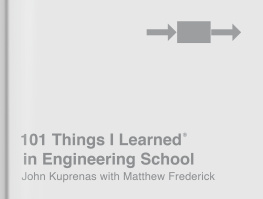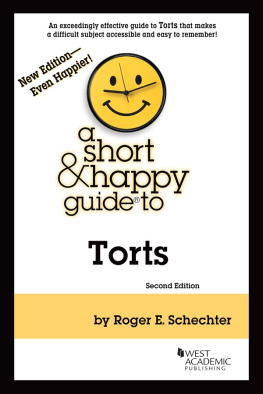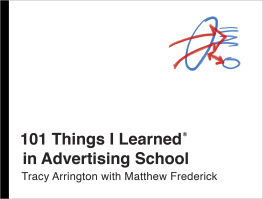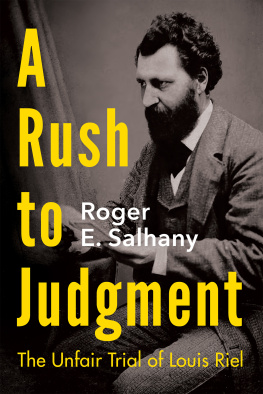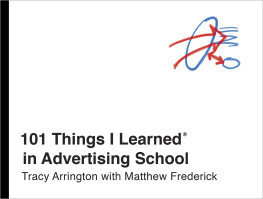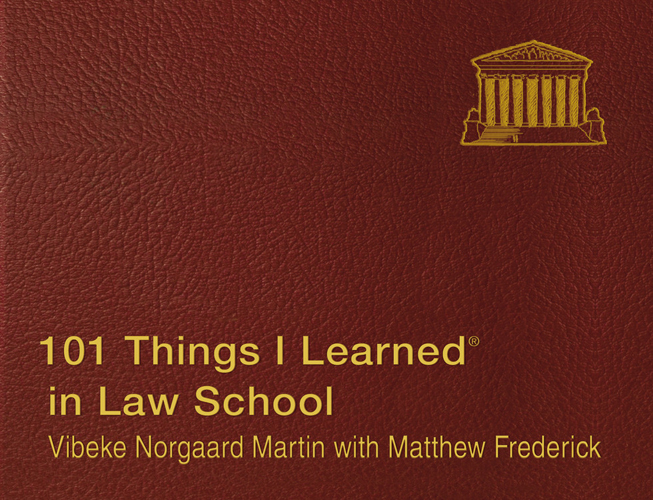In accordance with the U.S. Copyright Act of 1976, the scanning, uploading, and electronic sharing of any part of this book without the permission of the publisher constitute unlawful piracy and theft of the authors intellectual property. If you would like to use material from the book (other than for review purposes), prior written permission must be obtained by contacting the publisher at permissions@hbgusa.com. Thank you for your support of the authors rights.
Thank you for buying this e-book, published by Hachette Digital.
To receive special offers, bonus content, and news about our latest e-books and apps, sign up for our newsletters.
Sign Up
Or visit us at hachettebookgroup.com/newsletters
The materials available in this book are for general informational purposes only and not meant to provide legal advice. We make no claims, promises or guarantees about the accuracy, completeness, or adequacy of the information contained in this book. As legal advice must be tailored to the specific circumstances of each case, and laws are constantly changing, nothing provided in this book should be used as a substitute for the advice of competent legal counsel. Contact an attorney to obtain advice with respect to any particular issue or problem.
Copyright 2013 by Matthew Frederick
All rights reserved. In accordance with the U.S. Copyright Act of 1976, the scanning, uploading, and electronic sharing of any part of this book without the permission of the publisher constitute unlawful piracy and theft of the authors intellectual property. If you would like to use material from the book (other than for review purposes), prior written permission must be obtained by contacting the publisher at permissions@hbgusa.com. Thank you for your support of the authors rights.
Matthew Frederick is the series creator, editor, and illustrator.
Grand Central Publishing
Hachette Book Group
237 Park Avenue, New York, NY 10017
www.hachettebookgroup.com
www.twitter.com/grandcentralpub
First ebook edition: May 2013
Grand Central Publishing is a division of Hachette Book Group, Inc.
The Grand Central Publishing name and logo is a trademark of Hachette Book Group, Inc.
The Hachette Speakers Bureau provides a wide range of authors for speaking events. To find out more, go to www.hachettespeakersbureau.com or call (866) 376-6591.
The publisher is not responsible for websites (or their content) that are not owned by the publisher.
ISBN 978-1-4555-0981-2
101 Things I Learned in Business School
101 Things I Learned in Culinary School
101 Things I Learned in Engineering School
101 Things I Learned in Fashion School
101 Things I Learned in Film School
101 Things I Learned in Architecture School (MIT Press)
From Vibeke
To my two dear daughters
May you always continue to ask the questions.
While this book was being written, a prominent public official was charged with sexually assaulting a chambermaid in his hotel room. The official claimed the maid had initiated the encounter. Famous defense lawyer Alan Dershowitz, in presenting a mock closing argument to a trial advocacy class at Harvard Law School, attacked the defenses position. He suggested showing the jury a photograph of a naked, slightly overweight, and hunched sixty-two year-old man. The defense, Dershowitz argued to his audience, would like the court to believe that the attractive thirty-two year-old maid set her eyes upon the defendant and simply couldnt control herself.
Dershowitz, to laughter from his audience, was using an old truth we lawyers know but do not pay enough attention to: a picture is worth a thousand words. Lawyers are word people. Take words from us and you take away our most important tool. We need words to argue, parse, and issue nuanced interpretations of complex legal concepts. But images should not be ignored, for they often provide access to concepts that words alone cannot impart with the same impact and economy.
For this reason and others, I jumped at the opportunity to create an illustrated, introductory book on the law. When I was a beginning law student, I often felt frozen by the knowledge that I knew nothing. The other students seemed to know much more than me. They bandied about terms I didnt understand and projected a confidence I lacked. Often, I found myself wanting to chuck it all and do something else. (I recall telling a fellow student that I wished I had instead followed my earlier dream to become a veterinarian, even though it would have meant putting lots of puppies to sleep.) I was sure I was the reason I had trouble understanding what my professors and fellow students were talking about.
When I started working at a large law firm, I experienced these feelings again. But with experience in practice as well as in teaching, I came to realize that there is a certain amount of posturing in the field. Law is a sink or swim environment, and posturing is a way of intimidating those who are not inclined to hide what they dont know. But the likelihood, I have learned, is that the super-confident partner, professor, or law student may be as confused and intimidated by the complexities of law as I was. This book is for them, and for anyone else looking for a starting point to explore the complex questions of the lawand who would prefer to not wade through 101,000 words.
Vibeke Norgaard Martin
From Vibeke
Thanks to Dale Barnes, Michael Bowen, Susanne Caballero, Mike Clough, Ellen Gilmore, Ben Goldstone, Ian Martin, Joe Mastro, Daniel Meyers, Amy Roach, Bob Sims, and Peter Jaszi.
From Matt
Thanks to Karen Andrews, Erik Bodenhofer, Nicole Bond, Ken Collier, Sorche Fairbank, Meredith Haggerty, Laura Hankin, Dylan Hoke, Jamie Raab, Rekha Ramani, Kallie Shimek, Nick Small, Flag Tonuzi, Tom Whatley, Rick Wolff, and Bruce Yandle.

A popular characterization of the goals of law school
One attends law school to learn how to think like a lawyer, not to memorize laws. Laws change; how they are properly analyzed does not.
Honesty and truthfulness are not the same thing. Being honest means not telling lies. Being truthful means actively making known the full truth of a matter. Lawyers must be honest, but they do not have to be truthful. A criminal defense lawyer, for example, in zealously defending a client, has no obligation to actively present the truth. Counsel may not deliberately mislead the court, but has no obligation to tell the defendants whole story.
contextualist / khnTEKSchoolist / n. (pl.ists) a person who believes that the full meaning of a thing is not inherent in that thing, but depends on its relationship to other things.
The bar can refer to the entire legal profession, a formal portion of it, or the bar exam itself. Each state court system, federal court, and the U.S. Supreme Court is a separate bar with its own standards of admission and practice.
A courtroom is divided into two parts by a railing or similar barrier called the bar. Only lawyers, their clients, and witnesses who are called to testify may traverse it. The use of bar to refer to the legal profession as a whole derives from the tradition of barring non-participants from the trial area of the courtroom.


